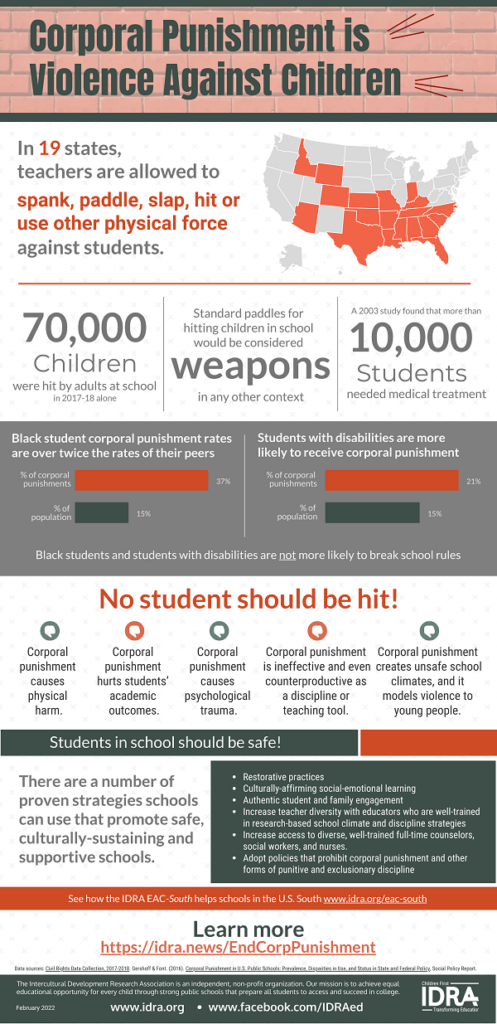 (February 16, 2022) Morgan Craven, J.D., IDRA’s National Director of Policy, Advocacy, and Community Engagement, testified today before the U.S. House Committee on Education and Labor’s Early Childhood, Elementary, and Secondary Education Subcommittee. Her testimony focused on:
(February 16, 2022) Morgan Craven, J.D., IDRA’s National Director of Policy, Advocacy, and Community Engagement, testified today before the U.S. House Committee on Education and Labor’s Early Childhood, Elementary, and Secondary Education Subcommittee. Her testimony focused on:
- What we know about the prevalence and harms of punitive and exclusionary discipline, particularly corporal punishment;
- The disproportionate use of corporal punishment against Black children and students with disabilities;
- The strategies, people, and policies it takes to create safe and positive school climates and protect the well-being and the civil rights of all children; and
- Why federal intervention is urgently needed to eliminate corporal punishment and other harmful school discipline and policing practices.
“Corporal punishment is used disproportionately against Black children and other children of color. Though they are not more likely to break school rules, they are more likely to be hit in their schools.”
“The harms of corporal punishment are clear. Students suffer physical harm, including injuries that require medical attention, like bruising and broken bones.”
“IDRA works with schools and educators across the south, and the most common type of request for assistance we get is for help moving away from harmful exclusionary discipline and school policing.”
“Some states that allow corporal punishment in schools ban it in juvenile detention centers, foster care settings, jails, and prisons because of the harm it can cause.”
“No school should be paddling, spanking, slapping, or hitting children. Full stop. Our nation has a problem of violence against children, perpetrated in schools and sanctioned by states.”
Watch the hearing below. Read her written comments (PDF).
IDRA released a new infographic: Corporal Punishment is Violence Against Children




